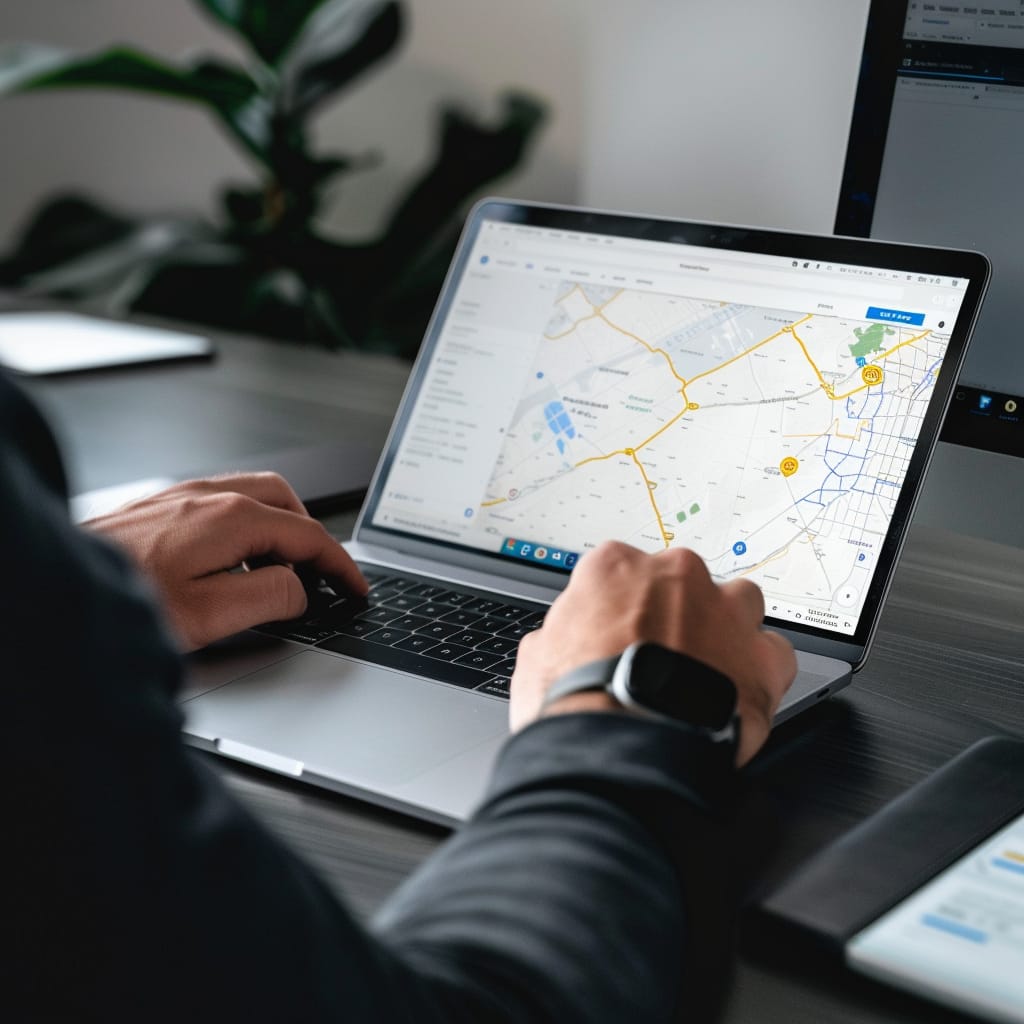How to Use Local SEO PPC Strategy and Service To Get More Clients!
Hello, local business owners and digital marketers! In today's competitive market, standing out in your local area is more crucial than ever. But how do you ensure that your business not only gets noticed but also attracts a steady stream of clients? The secret lies in a powerful combination: integrating Local SEO with Pay-Per-Click (PPC) advertising. This dynamic duo is not just a marketing strategy; it's a growth engine for local businesses.
Local SEO and PPC are like the two pillars supporting your business's online visibility. While Local SEO helps you climb the organic search rankings, making your business more visible to local searchers, PPC allows you to place targeted ads directly in front of potential customers. Together, they create a comprehensive approach that covers all bases: organic and paid, ensuring that your business captures attention at every possible opportunity.
But why combine them? Because when Local SEO and PPC work together, they amplify each other's strengths. Local SEO boosts your business's credibility and organic reach, laying the groundwork for lasting visibility. Meanwhile, PPC offers immediate impact, driving traffic and leads while your SEO efforts gain momentum. This synergy not only increases your visibility in local search results but also maximizes your chances of conversion, turning local searches into local clients.
In this article, we'll dive deep into how you can harness the power of Local SEO and PPC to create a robust, lead-generating machine for your local business. Whether you're a seasoned marketer or new to the digital landscape, understanding how to effectively integrate these strategies can transform your online presence and open the doors to a flood of new clients. Let's get started on this journey to boost your traffic and elevate your local business to new heights!
The Power of Local SEO and PPC Combined
In the bustling world of digital marketing, Local SEO and PPC stand out as two of the most effective strategies for local businesses aiming to capture the attention of their community. But what happens when you combine these two powerhouses? You unlock a new level of visibility and lead generation that can propel your business to the forefront of local searches.
Understanding Local SEO and PPC
Local SEO (Search Engine Optimization) is all about optimizing your online presence to appear in local search results. This means when someone in your area searches for "best Italian restaurant near me" or "emergency plumbers in [Your City]," your business pops up. It's about making sure your business is visible to those who are most likely to visit: the local shoppers and clients.
On the other hand, PPC (Pay-Per-Click) advertising involves creating ads and paying a fee each time someone clicks on them. These ads can be highly targeted based on location, ensuring that your business appears at the top of search results, above organic listings, whenever potential customers are looking for services or products you offer.
The Combined Force of Local SEO and PPC
When Local SEO and PPC are used together, they create a comprehensive marketing strategy that covers both organic and paid search results. This dual approach ensures that your business gains maximum visibility among local searchers.
Enhanced Visibility: By appearing in both the organic search results (through Local SEO) and the paid ad spaces (through PPC), your business dominates the search engine results pages (SERPs). This double exposure significantly increases the likelihood that local customers will notice and click on your business listing.
Targeted Reach: Both strategies allow for precise targeting, but when combined, they offer an unparalleled ability to connect with local consumers. While Local SEO helps capture those seeking organically, PPC can be used to target specific demographics, interests, or even times of day, ensuring your message reaches the right people at the right time.
Improved Credibility: When potential customers see your business appearing both in the organic search results and the ads, it increases your brand's credibility and trustworthiness. This dual presence signals to customers that your business is a leading player in the local market.
Data-Driven Insights: Integrating Local SEO and PPC provides valuable data that can be used to refine your overall marketing strategy. Analyzing which keywords drive traffic and conversions can help you optimize your SEO efforts, while SEO data can reveal insights that improve the targeting and effectiveness of your PPC campaigns.
Cost-Effective Lead Generation: While PPC requires investment, its costs can be mitigated by the organic traffic and leads generated through Local SEO. By balancing paid and organic strategies, you can reduce overall marketing costs while maximizing return on investment.
Building a Strong Foundation: Local SEO Basics
For local businesses aiming to thrive in the digital landscape, establishing a robust Local SEO foundation is non-negotiable. It's the bedrock upon which your online visibility is built, ensuring that when local customers search for services or products you offer, your business is front and center. Let's break down the key components of a successful Local SEO strategy and understand why each is crucial for drawing in that coveted local traffic.
1. Mastering Local Keywords:
At the heart of Local SEO lies keyword optimization, but not just any keywords—local keywords. These are phrases that potential customers in your area are typing into search engines. Think "boutique in downtown Boston" or "Miami seafood restaurant." Incorporating these local keywords into your website’s content, meta tags, and URLs is essential. They act as signals to search engines, indicating that your business is a relevant answer to local queries. Conduct thorough keyword research to identify the terms your local audience uses, and weave them naturally into your online presence.
2. Leveraging Google My Business:
Google My Business (GMB) is arguably the most powerful tool in your Local SEO arsenal. It allows you to manage how your business appears on Google Maps and in local search results. A well-optimized GMB profile showcases essential information—like your business name, address, phone number (NAP), operating hours, and customer reviews—all of which play a significant role in local search rankings and user experience. Regularly updating your GMB listing and encouraging satisfied customers to leave positive reviews enhances your visibility and attractiveness to potential local clients.
3. Crafting Local Content:
Content is king, even in Local SEO. But here, it’s all about localization. Creating content that resonates with your local audience can significantly boost your local search rankings. This includes writing blog posts about local events, news, or activities related to your industry. It’s also about including local place names in your content, sharing local case studies, or providing guides relevant to your area. Local content not only helps with SEO but also establishes your business as an integral part of the community.
4. Optimizing for Local Search Elements:
Local SEO isn’t just about keywords and content; it’s also about optimizing technical elements to favor local searches. This includes ensuring your website is mobile-friendly, as local searches predominantly occur on mobile devices. Additionally, implementing local structured data markup (Schema) can help search engines understand your site’s local relevance, improving your chances of appearing in rich snippets and the coveted Local Pack.
5. Building Local Backlinks:
Backlinks, or links from other websites to yours, are a cornerstone of SEO. For Local SEO, the focus is on acquiring backlinks from reputable local sources such as chambers of commerce, local business directories, and other local businesses or media outlets. These local backlinks reinforce to search engines that your business is an established part of the local community.
6. Managing Online Reviews and Citations:
Online reviews and citations (mentions of your business name, address, and phone number on other websites) significantly influence Local SEO. Actively manage your online reputation by responding to reviews, addressing negative feedback constructively, and encouraging happy customers to share their experiences. Ensure your NAP information is consistent across all platforms to avoid confusing both search engines and potential customers.
By laying down a strong Local SEO foundation, you not only increase your visibility in local search results but also set the stage for a thriving relationship with your local community. Remember, Local SEO is an ongoing process, not a set-it-and-forget-it deal. Regularly revisiting these basics and adjusting your strategy based on performance and changing local trends will keep your business competitive and prominent in local searches.
Crafting Your Local PPC Campaign
Once you've laid the groundwork with a solid Local SEO strategy, it's time to amplify your results with targeted PPC advertising. Local PPC, or Pay-Per-Click, is a crucial component of a comprehensive digital marketing strategy, especially for local businesses aiming to capture the attention of nearby customers. Let's dive into how to create a local PPC campaign that complements your SEO efforts and brings tangible benefits to your business.
1. Understanding the Benefits of Local PPC:
Local PPC advertising offers a plethora of benefits for local businesses. It provides immediate visibility in search engine results, directly above organic listings, making it a cost-effective way to reach local consumers quickly. Unlike broad-scale PPC campaigns, local PPC targets only those in your specified area, reducing wasted spend and increasing the relevance of your ads to your audience. This targeted approach ensures that your marketing budget is maximized, driving leads and sales from customers who are most likely to convert.
2. Developing a Local PPC Strategy:
Creating a successful local PPC campaign starts with understanding your marketing goals and how they align with the needs of local customers. Begin by identifying the unique aspects of your product or service that appeal to the local market. Use local jargon and references to make your ads resonate more with local searchers. Then, select local PPC keywords that potential customers are likely to use when searching for your offerings. This guide to local PPC will help you combine the right local keywords with compelling ad copy to capture the attention of your target audience.
3. Implementing Local PPC Management:
Effective PPC management is key to the success of your local campaigns. Consider working with a local PPC agency or utilizing PPC tools to streamline the process. These experts or tools can help businesses optimize their ad spend, refine ad copy, and adjust bidding strategies to improve the overall performance of your PPC campaigns. They can also assist in customizing PPC ads to reflect local events, deals, or news, further boosting the relevance and appeal of your ads to local audiences.
4. Leveraging Local Search Ads:
Local search ads are a powerful component of local PPC. They allow your business to appear directly on local search results pages and within maps, making it easier for local customers to find and contact you. Ensure your local search ads are optimized with up-to-date information, clear calls-to-action, and extensions like location or call buttons that make it simple for customers to engage with your business.
5. Measuring and Refining Your Local PPC Efforts:
As with any marketing campaign, measuring the effectiveness of your local PPC is crucial. Analyze metrics such as click-through rates, conversion rates, and cost per acquisition to understand how well your ads are performing. Use this data to refine your PPC strategies, making adjustments to ad copy, keywords, and targeting to continually improve results.
By integrating Local SEO and PPC, you create a robust marketing approach that leverages the best of both worlds. This combined strategy not only enhances your visibility in local search results but also drives targeted traffic to your site, leading to increased leads and sales. Remember, the key to success in local PPC is to remain flexible, continually optimizing your campaigns to meet the evolving needs of your local business and customers. With the right approach and ongoing management, your local PPC campaigns can become a significant source of revenue and growth for your business.
Optimizing Your Campaigns for the Local Market
To truly resonate with local audiences, your campaigns must speak directly to their needs and preferences. Tailor your ad copy to reflect local culture, events, and language. Utilize local PPC platforms and customize PPC ads to include local landmarks or well-known references, enhancing relatability and trust. Remember, the goal is to make local consumers feel that your business is a familiar, integral part of their community.
Key Strategies:
- Highlight local specials or events in your ads.
- Use ad extensions to display local contact information clearly.
- Segment campaigns by location to tailor messages for different local audiences.
Conversion Optimization for Local PPC
The ultimate goal of your local PPC campaigns is to convert clicks into customers. This means your landing pages must be optimized for local SEO and conversion. Ensure they load quickly, display correctly on mobile devices, and provide clear, local-specific information and calls to action. Test different elements of your pages, from headlines to images, to find what best drives conversions in your local market.
Best Practices:
- Include local reviews or testimonials for social proof.
- Ensure NAP consistency between your ads and landing pages.
- Offer clear, compelling incentives for local customers to take action.
Measuring Success: Local SEO and PPC Analytics
To refine and improve your local marketing strategies, you must understand how they're performing. Use tools like Google Analytics and Google Ads to track the effectiveness of your Local SEO and PPC efforts. Look at metrics such as local search rankings, click-through rates, conversion rates, and return on ad spend. Regular analysis allows you to make data-driven decisions and pivot your strategies as needed.
Key Metrics:
- Local keyword rankings and changes over time.
- Conversion rates from PPC ads and local landing pages.
- Engagement metrics for local content and listings.
Advanced Local PPC Strategies
As you become more comfortable with local PPC, consider exploring advanced strategies to further enhance your campaigns. Test different ad formats, such as Google’s Local search ads or Facebook’s location-based ads. Experiment with dynamic ad copy that changes based on the user’s location. Dive into retargeting to capture users who have visited your site but haven’t converted.
Innovative Approaches:
- Use geofencing to target customers within a specific radius.
- Implement local lead generation ads to directly collect information from prospects.
- Explore local influencer partnerships to expand your reach.
Overcoming Challenges in Local SEO PPC
Every local business will face its unique set of challenges when integrating Local SEO with PPC. Common issues include budget constraints, fluctuating local search rankings, and maintaining NAP consistency across multiple platforms. To overcome these challenges, stay flexible, continuously monitor your campaigns, and be willing to adjust your strategies based on performance and local market changes.
Solutions:
- Set clear budgets and expectations for both SEO and PPC.
- Regularly update your local listings and website to maintain consistency.
- Stay informed about local market trends and adjust your campaigns accordingly.
Conclusion
Integrating Local SEO with PPC is not just a strategy; it's a comprehensive approach to ensure your local business thrives in the digital age. By understanding and implementing these practices, you can significantly boost your local online presence, attract more targeted traffic, and convert local searchers into loyal customers. Remember, the key to success is consistency, monitoring, and adapting to the unique needs of your local market. Start today, and watch your local business grow beyond what you thought possible.
Call to Action
Now that you have the tools and knowledge at your disposal, it's time to take action. Begin by reviewing your current Local SEO and PPC efforts, identify areas for improvement, and start implementing the strategies discussed. If you're feeling overwhelmed or unsure where to start, consider partnering with a digital marketing agency that specializes in local SEO and PPC. Don't let another day pass without maximizing your local business's potential. Dive into the world of Local SEO and PPC, and start bringing in those valuable local leads today!



